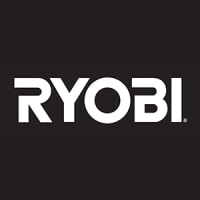This Online Tool Helps Travelers Find Small Businesses in Diverse Communities Across 35 States
:max_bytes(150000):strip_icc()/TAL-header-shopping-bag-intentionalist-INTNALST0323-2c7affeb540a4b209ace01cdaf4342e9.jpg)
Laura Clise was on a trip in Cambodia when she stumbled upon an artisanal collaborative selling handwoven silk scarves. It was the perfect souvenir: It supported artisans and was a functional purchase. The experience catalyzed a desire to shop consciously, whether it be at home or on the road. “I was interested in spending my money, not toward the accumulation of as much stuff as possible for as little money as possible, but in purchasing gifts and experiences that connected me to people and culture and community,” Clise, who lives in Seattle, told Travel + Leisure.
When she returned from her trip, she looked for resources to help her be more intentional about what she bought.
Clise couldn’t find anything so, in 2017, she created one herself: Intentionalist.
Intentionalist is an online small business directory on a mission to guide people toward conscious consumerism. Now, five years later, travelers and community members can easily access recommendations to more than 4,000 local businesses thanks to Clise’s community-driven guides.
The platform has recommendations for cities across 35 U.S. states — and the list is growing. Travelers can use the site to find a wide selection of restaurants, cafes, and boutiques to visit.
The online directory also has an interactive map with filters to search for veteran-, Indigenous-, LGBTQ+-, Asian-, Latinx-, Black-, or disability-owned businesses. And the site’s blog spotlights business owners and their stories.
“We believe that where we spend our money matters. And that everyday decisions about where we eat, drink, and shop are an opportunity to connect with and intentionally support the main streets [and] small businesses at the heart of our communities,” Clise said, while sitting at Hood Famous Cafe + Bar — a female-owned eatery in Seattle. (And, of course, it’s a business highlighted on Intentionalist’s website.)
JangeGPhoto/Courtesy of Intentionalist
Hood Famous Cafe + Bar is a great example of the types of businesses Intentionalist promotes and the neighborhoods it uplifts.
The Filipino-owned small business operates out of the Publix Building — it housed immigrant workers in the 1930s, including many Filipino cannery workers — in Seattle’s Chinatown-International district. The cafe serves baked goods with Filipino flavors like ube cheesecake, cassava cake, and a daily selection of freshly baked pandesal.
“In a world where we are grappling with inequality, where we are grappling with how it is that we bridge cultural differences, how it is that we reinforce connection and community, small businesses, like this coffee shop, have a long history of providing a piece of the solutions to so many of the challenges that we face,” Clise explained.
As an avid traveler, Clise drew on her experiences visiting countries throughout Southeast Asia and Europe to inspire Intentionalist as a resource for fostering connection for people who live within these communities, but also for those visiting.
“When we’re traveling, we’re looking for something that satiates our curiosity — something that offers maybe a different point of view, a different kind of experience, and opportunity to experience another culture or another climate,” she said. “Small businesses, whether they are places where we’re grabbing a bite or operating tours or other experiences, occupy a unique place in the economy, [and] are the social and cultural fabric of a country.”
Travelers can access recommendations by using the Intentionalist website on their computers or their smartphone. The search tool on the home page has the option to search by type of business and zip code to help locate what’s nearby. (Sure, there’s always Google or Yelp, but Intentionalist makes it just as convenient to support local businesses and feel good about it, too.)
Courtesy of Intentionalist
In addition to the blog and guides, Intentionalist has a marketplace where you can purchase gift cards from participating businesses — 100 percent of the profit goes directly to the small business.
“As [Intentionalist] scales, it generates benefit and creates value for all of us in a way that we can feel good about,” Clise said. “And it closes the gap between our good intentions and [our] ability to easily take action.
It connects what we say to what we do — and that makes it easier for all of us to contribute to the more inclusive, equitable, [and] sustainable world that we say we want to be a part of.”
To look up notable businesses near you or a destination you’re traveling to, visit intentionalist.com.





